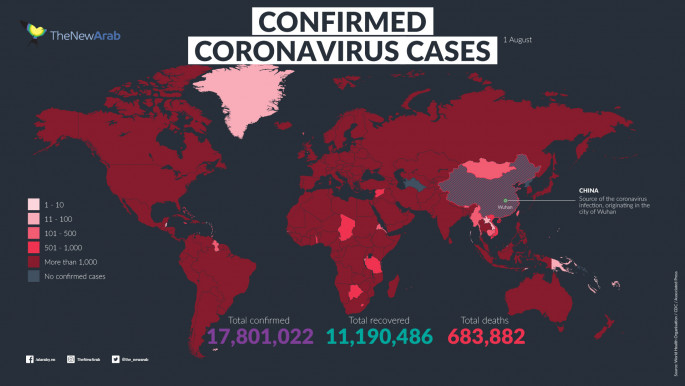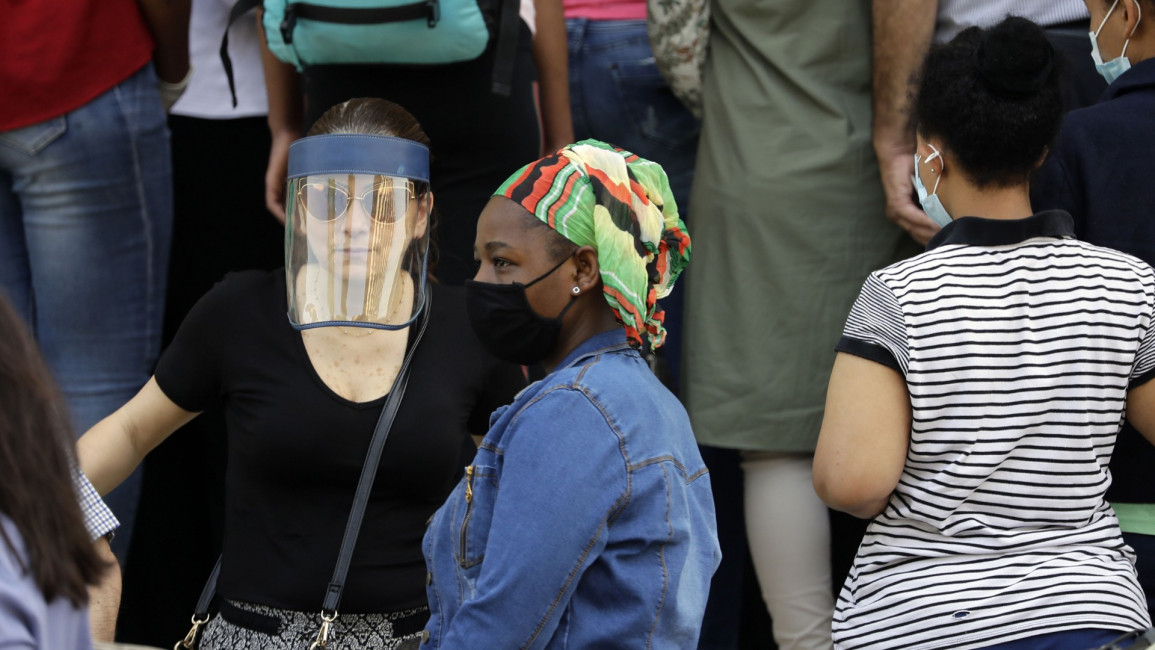Follow us on Facebook, Twitter and Instagram to stay connected
Beirut protesters try to break into government office over power cuts amid coronavirus quarantine
Dozens of protesters tried to break into the Ministry of Energy offices in Beirut on Thursday, protesting recent power cuts during a weeklong heatwave as coronavirus continues to dampen the gatherings.
The protesters scuffled with security forces who tried to push them back.
Protesters also staged a sit-in inside the building.
Police tried to forcibly remove them which led to a clash between the two sides.
Lebanon faces chronic electricity cuts that can reach up to 12 hours a day in some areas.
The problem gets worse during the hot summer months.
The country is also passing through an unprecedented economic and financial crisis, the local currency has crashed and prices are soaring, leading to sporadic protests across the country.
"The corrupt state has cut electricity on us," said Anthony Douaihy, a protester.
"There is electricity at the presidential palace, at the government building there is electricity and the same with parliament and we don't have it, why? They are stealing 2 billion dollars a year.
"Bring a billion dollars to spend on electricity and take a billion for yourself but relieve us.
"We will get rid of you."
|
An unprecedented economic crisis, nationwide protests and coronavirus pose the biggest threat to stability since the end of the civil war in 1990, and there are fears of a new slide into violence.
Nowhere is the despair deeper than in Tripoli, Homsi’s hometown and Lebanon’s poorest city.
Overwhelmingly Sunni Muslim and home to over 700,000 people, Tripoli has suffered years of neglect and is stigmatized with violence and extremism. Mounting poverty is turning it into a powder keg.
Even before the crises, almost the entire city's workforce depended on day-to-day income, and 60% of them made less than $1 a day.
More than half of the families were in the poorest classification, lacking basic services, education and health care, said Suheir Ghali, a university professor who carried out a study of Tripoli.
Things will get worse as Lebanon’s economy contracts. Already 45% of the country’s population is below the poverty line. The currency has lost nearly 60% of its value to the dollar.
Unemployment has risen to 35%, nearly double the current US figures rivaling the Great Depression.
 |



![Lebanese protesters take part in a demonstration in support of Palestinians on 18 May 2021 in Beirut, Lebanon. [Getty]](/sites/default/files/styles/image_330x185/public/2021-06/GettyImages-1232967618.jpg?h=58c8a5e7&itok=0HHt3VmF)